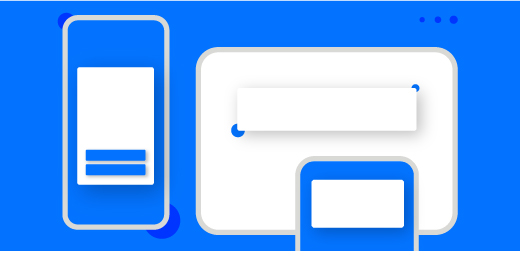What is Personalized Marketing, and How can We Create a Personalized Marketing Strategy?
- Reading Time: 8 minutes
What Is Personalized Marketing?
Personalized marketing, also known as marketing personalization or one-to-one marketing, is a strategy that utilizes data to target and retarget leads with a brand message that speaks directly to specific customers’ interests, demographics, and buying behavior. The goal of personalized marketing is to create a personalized experience for each customer, making them feel valued and understood.
In a personalized marketing strategy, individual customers are treated as unique entities, and their preferences and behaviors are analyzed to create personalized content, recommendations, and offers. The strategy involves collecting and analyzing customer data, such as demographics, purchase history, digital behavior, and taking real-time actions, to tailor marketing messages to each customer’s specific needs.
B2C Personalized Marketing
B2C personalized marketing tailor experiences for individual customers by using customer data to deliver targeted messages. Social media platforms play a crucial role in this strategy, enabling direct engagement through personalized content and ads. Businesses can analyze data to offer personalized product recommendations and promotions, enhancing the shopping experience and boosting sales.
Personalized digital messaging, such as in- app’s emails are also essential in B2C marketing. By segmenting customers based on demographics or interests, businesses can send targeted emails with customized content, promotions, and recommendations to improve engagement and conversion rates.
B2B Personalized Marketing
Personalized B2B marketing focuses on understanding customer needs and preferences in business-to-business marketing. Building strong customer relationships is important, requiring deep knowledge of their goals, pain points, and industry. Effective customer relationship management (CRM) software helps track interactions and personalize messages. Lead capture forms collect information for targeted marketing campaigns, enhancing engagement and driving conversions in the B2B market.

Why Personalized Marketing Matters?
Personalized marketing is essential for businesses to stay competitive in today’s market. Customers expect personalized experiences and content that cater to their individual needs and preferences. Here are the key reasons why personalized marketing matters:
- Customer Loyalty: Personalized marketing creates a strong bond between a customer and a brand, leading to increased customer loyalty and repeat business.
- Marketing Strategies: Personalized marketing strategies have been proven to be more effective in engaging customers and driving conversions compared to generic, one-size-fits-all marketing campaigns.
- Customer Satisfaction: Personalized marketing ensures that customers receive relevant and tailored content, leading to higher levels of customer satisfaction.
- Conversion Rate: Personalized marketing has a significant impact on conversion rates as customers are more likely to engage with personalized content and offers and make a purchase.
By implementing personalized marketing strategies, businesses can build stronger relationships with customers, increase customer loyalty, and ultimately drive business growth.
Personalized Marketing vs. Traditional Marketing
Personalized marketing differs from traditional marketing approaches in several keyways. Here are the key differences between personalized marketing and traditional marketing:
Targeted Campaigns: Personalized marketing delivers messages and offers to individuals based on preferences and behaviors, while traditional marketing uses broad messages for a wide audience.
Customer Journey: Personalized marketing tailors messages based on each customer’s journey, unlike traditional linear approaches.
Higher Engagement: Personalized messages have higher open rates and engagement as they address specific interests.
Brand Loyalty: Personalized marketing fosters stronger brand loyalty by making customers feel valued.
Data-Driven Decisions: Personalized marketing relies on data analysis for decision-making, unlike traditional methods.
Building a Personalized Marketing Strategy
Building a personalized marketing strategy requires careful planning and implementation. Here are the key steps involved in building an effective personalized marketing strategy:
Data Analysis: Analyze customer data to understand preferences, real-time and past behaviors, and demographics.
Customer Segmentation: Segment customers based on characteristics to tailor messages effectively.
Personalization Efforts: Develop personalized content, offers, and recommendations based on data analysis.
Marketing Technology: Use tools to automate personalized marketing efforts to better understand the end-user and their preferences.
Test and Refine: Continuously test campaigns and refine strategies based on performance.
Continuous Improvement: Stay updated with trends and adapt strategies for effectiveness.
Following these steps helps businesses engage customers, drive conversions, and enhance the overall experience.
Building a Personalized Marketing Strategy
Personalization tools are essential for effective marketing strategies.
- Marketing Automation Platforms: These streamline personalized email campaigns and content delivery based on customer behavior.
- Data Management Platforms (DMP): They help collect and analyze customer data to create detailed profiles for personalized messages.
- Customer Relationship Management (CRM) Systems: These track interactions and personalize marketing based on insights gained from customer data.
- Artificial Intelligence (AI) and Machine Learning: These technologies predict customer preferences and deliver tailored content by analyzing vast amounts of data.
- Personalization Engines: These utilize AI to provide customized experiences across digital channels, catering to individual preferences and behaviors.
- Content Management Systems (CMS): These enable content customization based on different customer segments, ensuring relevant messaging for each group.
Tech Solutions for Tailored Marketing
Artificial intelligence (AI) and machine learning have transformed marketing strategies. Key tech solutions for tailored marketing include:
- AI-Powered Personalization: Platforms analyze customer data to provide personalized recommendations.
- User Experience Testing: Tools gather feedback to enhance the customer journey.
- Marketing Automation Software: These automate personalized campaigns based on customer behavior.
- Personalized Email Marketing: Platforms create personalized email campaigns.
- Social Media Marketing Tools: They allow you to create personalized social media campaigns.
- Dynamic Content Management Systems: These deliver customized content across digital channels. These solutions help businesses improve tailored marketing, enhance customer engagement, and drive conversions.
These solutions help businesses improve tailored marketing, enhance customer engagement, and drive conversions.
Sign up to drive your business with the power of data
Crafting Personalized Content
To successfully craft personalized content, leverage customer data to understand preferences and behaviors and tailor messages accordingly. Employ personalization strategies like product recommendations based on purchase history and implement dynamic content on landing pages for a personalized experience. In-app messages, appearing when the user is already active, serve various purposes such as directing, offering campaigns, or promoting products or services.
Targeted in-app messages displayed through data-driven communications have high user interactions. By capturing users’ attention with visually appealing messages and using targeted messaging to encourage specific actions or behaviors, you can boost user engagement. Platforms like Dataroid offer the capability to send in-app messages and set up actions, such as directing users to specific pages, external or within the application, using a versatile structure.
Tips and techniques for resonating messages
Effective personalized marketing messages resonate deeply with customers. Use customer data to tailor content, segment your audience, and craft compelling subject lines for emails. Leverage user data for personalized recommendations and offers. Implement A/B testing for continuous improvement. Stay consistent across channels to reinforce your brand message and monitor engagement metrics to measure effectiveness. Authenticity and relevance are key to resonating with your audience.
Measuring the Impact of Personalized Marketing
Measuring the impact of personalized marketing is crucial for evaluating the effectiveness of marketing efforts and driving continuous improvement. Here are the key reasons why measuring the impact of personalized marketing matters:
- Key Performance Indicators (KPIs): Establishing KPIs allows businesses to track the performance of their personalized marketing campaigns. KPIs may include metrics such as customer engagement rates, conversion rates, goal hits, customer satisfaction scores, and customer retention rates.
- Evaluation of Marketing Efforts: Measuring the impact of personalized marketing helps businesses evaluate the effectiveness of their marketing strategies, identify areas for improvement, and optimize their marketing efforts.
- Continuous Improvement: By analyzing performance metrics and customer feedback, businesses can drive continuous improvement in their personalized marketing strategies. This ensures that marketing efforts remain effective and aligned with customer expectations and market trends.
By measuring the impact of personalized marketing, businesses can assess the success of their strategies, identify areas for improvement, and drive continuous growth and customer engagement.
Key Performance Indicators (KPIs) to Monitor
Measuring the impact of personalized marketing requires monitoring key performance indicators (KPIs) that indicate the effectiveness of marketing efforts. Here are some important KPIs to monitor:
- Conversion Rate: Percentage of website visitors or leads taking desired actions, like making a purchase.
- Open Rates: Percentage of email recipients opening emails, showing engagement.
- Click-Through Rates: Percentage of email recipients clicking on links or CTAs, indicating engagement.
- Customer Satisfaction: Scores from surveys or feedback reflecting personalized marketing success.
- Customer Retention: Percentage of customers staying loyal, showing effectiveness in building relationships.
- Purchase History Analysis: Tracking buying patterns for cross-selling and upselling opportunities.
- Goal Hits
Monitoring these KPIs helps businesses evaluate personalized marketing impact and optimize strategies for improved customer engagement and conversions.
Examples of Personalized Marketing Campaigns
Personalized marketing campaigns have been successful in various industries. Here are some examples:
- Pegasus, a leading brand in the airline industry, implemented a highly effective personalized marketing campaign using Dataroid. Pegasus has integrated Dataroid into its mobile app to communicate with digital users contextually and in real-time. Dataroid became a key partner in helping digital users receive relevant information on time without any customized product development. Moreover, Pegasus used Dataroid’s push notifications to inform users of partnerships, its loyalty program, and campaigns as well as pandemic updates.
- In the financial industry, İşbank, with its massive user base, partners with Dataroid to integrate customer-level data across various digital platforms for a seamless user experience. This approach ensures relevance and fosters long-term loyalty in a competitive market.
- OPET implemented a data analytics solution using Dataroid to enhance their new mobile app by tracking and understanding user behavior. Their main objectives were to increase daily active and unique users, enhance error management, quicken the adoption of new features, ensure a seamless payment process, and improve overall app engagement. By integrating a unified customer data platform, OPET gained insights into user behaviors across web and mobile platforms, enabling them to segment users effectively. This strategic approach allowed them to deliver personalized notifications and messages, leading to higher engagement and increased conversions. This optimized their mobile engagement strategy to foster customer loyalty and revenue growth.
These examples highlight how personalized marketing improves customer experience, engagement, and sales.
Frequently Asked Questions
What’s the ROI of investing in personalized marketing?
Personalized marketing’s ROI lies in increased customer engagement, conversion rates, and brand loyalty. By tailoring content to individual preferences, businesses can see higher returns through improved customer satisfaction and repeat purchases. Understanding customer data is key to maximizing the benefits.
How effective is personalized marketing?
Personalized marketing is highly effective as it enhances customer engagement, boosts conversions, and improves brand loyalty. By tailoring content to individual preferences and behaviors, businesses can create meaningful connections with their target audience, leading to increased ROI and customer satisfaction.
What’s the relationship between personalized marketing and omnichannel marketing?
Both personalized marketing and omnichannel marketing focus on creating tailored experiences for customers. Personalized marketing customizes content based on individual preferences, while omnichannel ensures seamless interactions across all channels. When combined, they enhance customer engagement and loyalty.
Key Takeaways
Personalization is no longer a luxury but a necessity in today’s marketing landscape. By implementing personalized marketing strategies, businesses can enhance the customer experience, increase customer engagement, and boost conversions. The use of emerging technologies such as artificial intelligence and machine learning can help businesses analyze consumer data and deliver personalized content and recommendations. The collection of consumer data and the use of social media platforms also play a crucial role in personalized marketing.
Overall, personalization is essential for businesses to stay competitive and meet the evolving expectations of their customers. Contact the Dataroid team to get more information on this subject. Together we can unlock the full potential of your business and maximize your conversion rates.

YOU MAY ALSO LIKE
Using Uninstall Tracking to Reduce Churn
Top 5 Benefits of Customer Journey Mapping
Personalized Marketing Age: How to Deliver the Right Message?
How to ensure your mobile marketing campaign adheres to modern best practices
Drive your digital growth
Schedule a demo today to learn more on how we can help you unleash the potential of digital using Dataroid.




